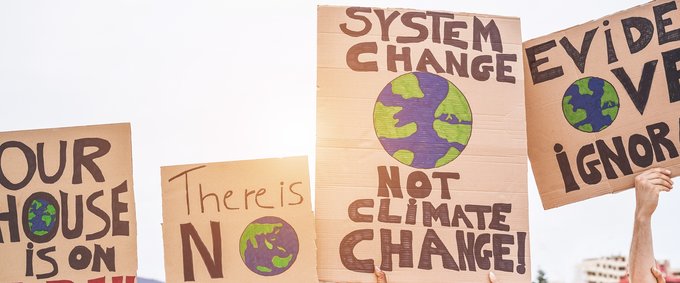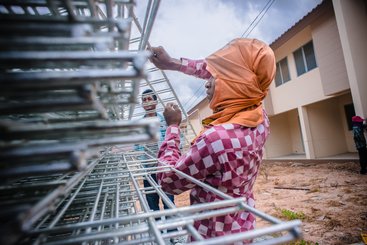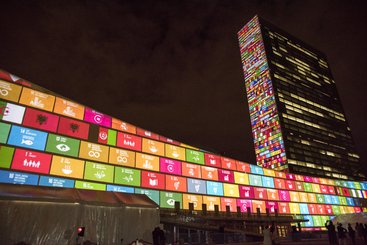
ODI Nexus
Achieving Inclusive, Sustainable Economic Transformation through integrated policy
Connecting economic, social and environmental policies can be a complex undertaking. ODI’s four-year programme, supported by Sida, aims to examine how to jointly achieve objectives related to economic transformation, sustainability and inclusion. These are all objectives pursued by many governments and international agencies separately, but rarely are they well joined up.
Through collaborative research, we explore the synergies and trade-offs between these interconnected objectives, creating an integrated framework for joined-up policies which can anticipate and overcome obstacles hindering their implementation.
Our interdisciplinary team brings together expertise in International Economic Development (see the focus on structural economic transformation), Climate and Sustainability, Global Risks and Resilience and Equity and Social Policy.
The challenge
Our initial analysis of cross-country indicators reveals that few countries have made balanced progress across all three objectives.
We have also worked out how decent livelihoods for the bottom half of the income distribution can be achieved within planetary boundaries: this can be done but with some politically challenging reduction in consumption among the global wealthy. [Read the full report]
Identifying success stories for our Compendium of Successes has been challenging, particularly at the national level. This has been complemented with a deeper dive into Thailand’s policy development and Bio-Green Circular Economy project. Nevertheless, we are developing a Theory of Change – a roadmap for achieving more integrated policy-making.
We have also begun an investigation of whether climate financing can support inclusive, sustainable economic transformation, with a largely positive assessment of the multi-lateral climate funds. This assessment is now being complemented with an analysis of the World Bank portfolio.
We have also worked with partners in three fairly typical middle-income countries on a deeper dive into these questions.
In Kenya, we initiated stakeholder workshops and research to test our theory of change. Kenya offers a promising foundation for sustainable economic development, with a renewable energy sector that has undergone a massive transformation since the year 2000 when drought and widespread and prolonged power outages led to a reassessment of the sector. Building on previous collaborative work, we have been working at the local (county) level to see what advantages this brings in achieving inclusive and sustainable economic transformation.
In Bangladesh, we have worked with partners (Centre for Policy Dialogue and International Centre for Climate and Development) to understand how and why environmental issues get lower policy priority than economic or inclusion issues, and what might be done to shift this balance, with a special focus on the water sector.
And in Indonesia, we have explored with partners (the Dala Institute) on the challenges involved in switching electricity reliance from coal to less polluting sources.
In the immediate future, plans include publishing our findings on the above topics in a final report, which aims to develop a coherent narrative on how best to join up decision-making across these three sets of policy objectives, and hosting public meetings and webinars. Additionally, we will conduct an analysis of global climate funds to evaluate their contribution to promoting inclusive, sustainable economic transformation.
Join our community
We are in the process of identifying a vibrant Community of Interest, composed of individuals dedicated to delivering at the intersections of inclusiveness, sustainability and economic transformation. If you are interested in being part of this community, please get in touch with Andrew Shepherd at [email protected].
Publications and insights

ODI Staff
-
Dirk Willem te Velde
Director, International Economic Development Group, Principal Research Fellow
-
Sarah Colenbrander
Director, Climate and Sustainability programme
-
Alberto Lemma
Research Fellow
-
Vidya Diwakar
-
Andrew Shepherd
Senior Research Associate
-
Judith Tyson
Research Associate
-
Emma Lovell
Research Fellow
-
Adriana Quevedo
Senior Research Officer
-
Neil Bird
Senior Research Fellow
-
Sam Pickard
Research Associate
-
Adina Sadiq
Project Management Officer
Partners
-
Professor Njuguna Ndungu
African Economic Research Consortium, Kenya
-
Elvin Nyukuri
University of Nairobi, Kenya
-
Wamuyu Gatheru
Consultant




